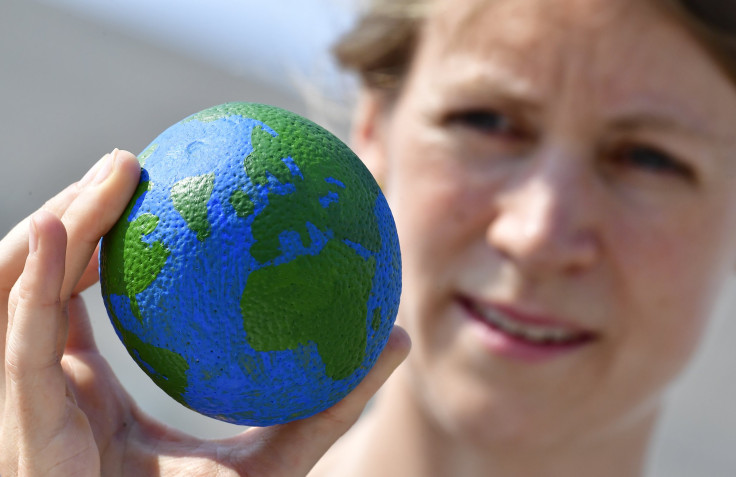World 'Celebrates' Earliest Earth Overshoot Day Recorded In History

On Aug. 1, the world “celebrated” Earth Overshoot Day, marking the date when our demand for earth’s ecological resources and services for this year has officially exceeded what it could have regenerated in the year.
This year’s Earth Overshoot Day marks the earliest date it was ever recorded in history, since the world first went into ecological overshoot in the 1970s, which is really not something to be celebrated.
Earth Overshoot Day 2018 is August 1, the earliest date yet since the world went into ecological overshoot in the 1970s. If we #MoveTheDate 5 days a year, Earth Overshoot Day will fall back to Dec. 31 by 2050. https://t.co/ZwrDagJt5K pic.twitter.com/mGb3Rnk039
— Footprint Network (@EndOvershoot) July 30, 2018
Currently, people are using resources at a rate of 1.7 times faster than the earth can generate in a year. That means people are using resources at a rate that can only be renewed if there were 1.7 Earths. The date has increasingly come earlier each year and unless adequate steps are taken, Earth might run out of resources soon.
The day is calculated by the Global Footprint Network, an international think-tank that coordinates research, by using “Ecological Footprint accounting,” that calculates demands on nature like food, timber, and fiber; carbon emission absorption from fossil fuel burning; and buildings, roads, and infrastructure that take up land.
August 1st is #EarthOvershootDay 🌍 We’re using our planet’s resources as if we had 1.7 Earths, humanity’s demand on our planet has never been greater. Find out what impact you’re having on Earth’s resources, and how you can make a pledge to #MoveTheDate - https://t.co/LuSkJyLvFg pic.twitter.com/NAO5VgkPzK
— WWF (@WWF) July 31, 2018
To calculate the Earth Overshoot Day, Earth’s biocapacity and humanity’s ecological footprint has to be calculated. Earth’s biocapacity is the amount of ecological resources that Earth can re-generate in a year. Ecological footprint is humanity’s demand for those resources. Both are calculated in global standardized hectares.
The Earth Overshoot Day is calculated by dividing the biocapacity of the planet by human ecological footprint, which is then multiplied by 365 or the number of days in the year. (Planet’s Biocapacity / Humanity’s Ecological Footprint) x 365 = Earth Overshoot Day.
When would Earth Overshoot Day land if the world’s population lived like your country?#MoveTheDate https://t.co/QYSgEAvHMC pic.twitter.com/hrTUYllu3R
— ICLEI (@ICLEI) July 24, 2018
Specific Country’s Overshoot Dates are also calculated on the website. U.S.' Overshoot Day was on March 15, this means if the world lived like people in the U.S., the Earth Overshoot Day would have happened by the third month of the year.
How many Earths would we need if everyone on the planet lived like people in your country? Dive into Footprint data to find out, and then share a Footprint fact on social media with the hashtag #MoveTheDate to enter to win a Footprint Champion t-shirt. https://t.co/9mjsnbxJNn pic.twitter.com/BLya6LBZPN
— Footprint Network (@EndOvershoot) July 26, 2018
This “ecological overspending” increases deforestation, biodiversity loss, soil erosion, scarcity of fresh-water and fishes. It also increases the buildup of carbon dioxide in the atmosphere, which can result in severe droughts, wildfires, hurricanes and other weather disasters around the world, on a large scale. This ultimately produces severe climate change as well.
The Global Footprint Network began the hash tag #MOVETHEDATE with the aim of pushing the date of Earth Overshoot Day backward in the coming years.
Four solution areas were identified by the Global Footprint Network to push back the Earth Overshoot Day: Cities, Energy, Food and Population.
The Overshoot Day can be pushed back by 12 days by reducing driving by 50 percent and replacing it with public transport for one-third car miles and the rest with walking and biking. 93 days can be brought back by reducing the component of humanity’s Ecological Footprint by 50 percent. By cutting food waste in half, reducing Footprint intensity diets and consuming world-average calories, the Overshoot Day can be brought back 38 days. If one in two families opted to have one less child, the Overshoot day will be moved 30 days by 2050.
We would #MoveTheDate of Earth Overshoot Day 38 days if everyone in the world consumed world average calories, reduced the Footprint intensity of their diet, and cut food waste in half! @BarillaCFN pic.twitter.com/cAemENg1q8
— Footprint Network (@EndOvershoot) August 2, 2018
According to our analysis with @SchneiderElec, existing off-the-shelf, commercial technologies for buildings, industrial processes, & electricity production could move Overshoot Day 21 days, without any loss in productivity or comfort. #MoveTheDate https://t.co/vBy7AY1MbH pic.twitter.com/LE7E9Fdx0H
— Footprint Network (@EndOvershoot) July 31, 2018
This year, #EarthOvershootDay 🌍 is Aug 1. How can we #MovetheDate?
— OECD Environment (@OECD_ENV) August 1, 2018
Pursuing ambitious #climate policy will not only our reduce our #CarbonFootprint, but also increase GDP in the long run.
➡ https://t.co/0bKLKDfs9E | @OECD
➡ https://t.co/QnC549KZV1 | @EndOvershoot pic.twitter.com/6jLfZCuf70
“As we mark Earth Overshoot Day, today may seem no different from yesterday — you still have the same food in your refrigerator,” Global Footprint Network CEO Mathis Wackernagel said in a press release. “But fires are raging in the Western United States. On the other side of the world, residents in Cape Town have had to slash water consumption in half since 2015. These are consequences of busting the ecological budget of our one and only planet.”
“Our economies are running a Ponzi scheme with our planet. We are using the Earth’s future resources to operate in the present and digging ourselves deeper into ecological debt,” Wackernagel added. “It’s time to end this ecological Ponzi scheme and leverage our creativity and ingenuity to create a prosperous future free of fossil fuels and planetary destruction.”
© Copyright IBTimes 2025. All rights reserved.





















